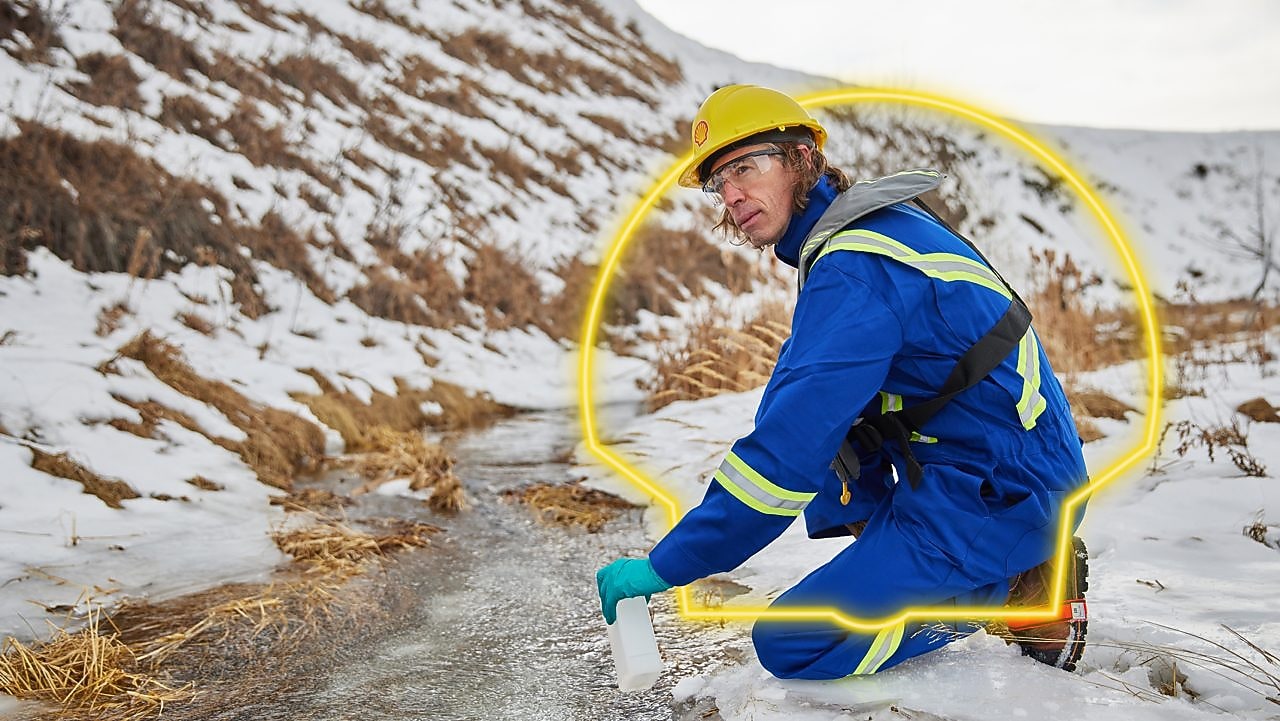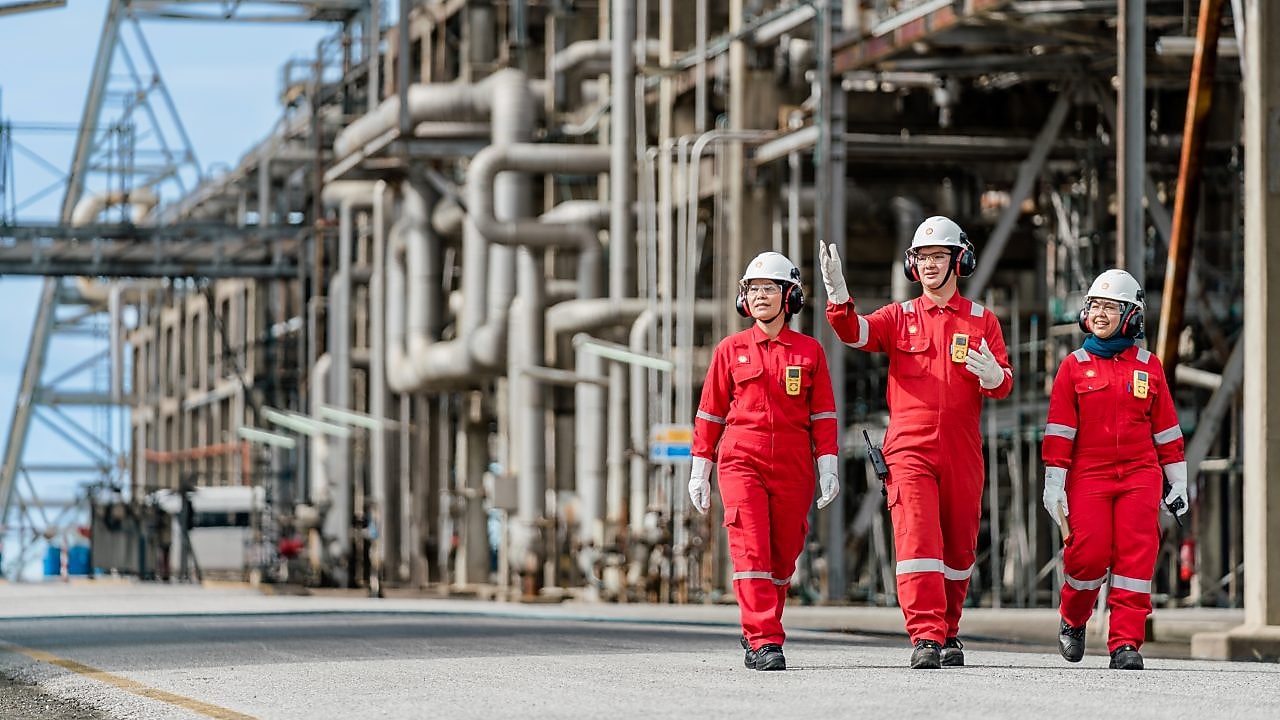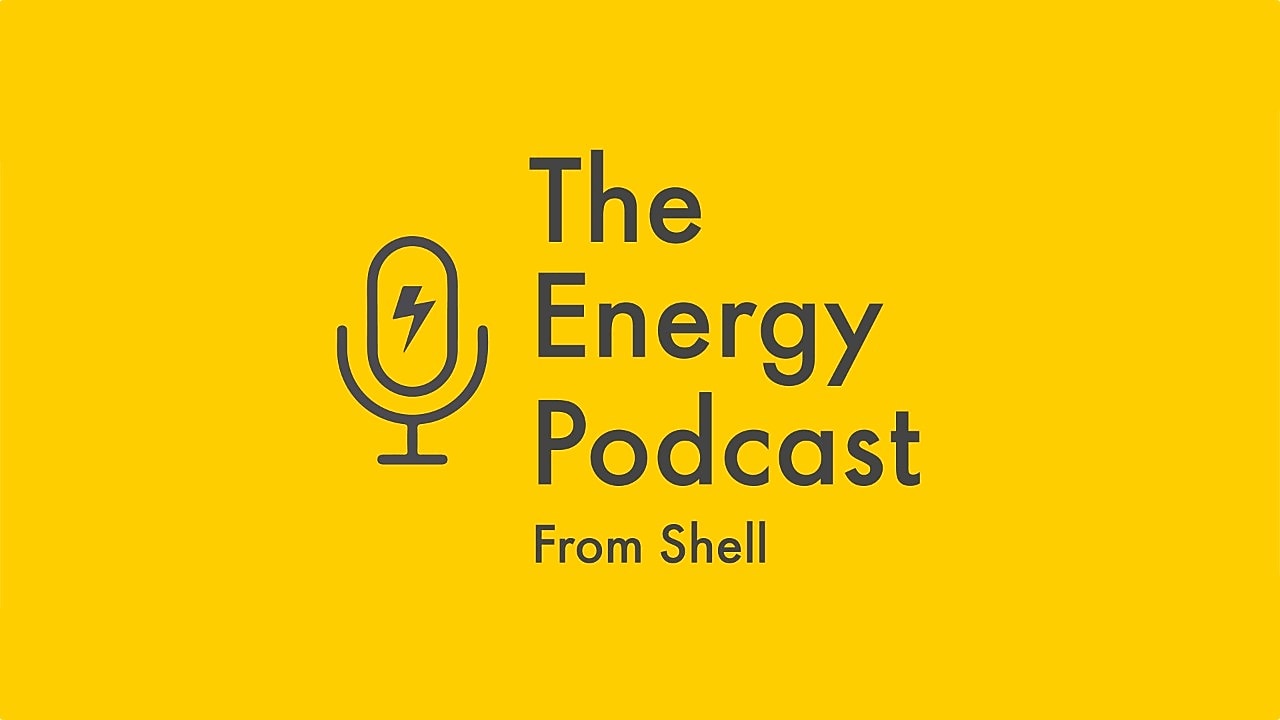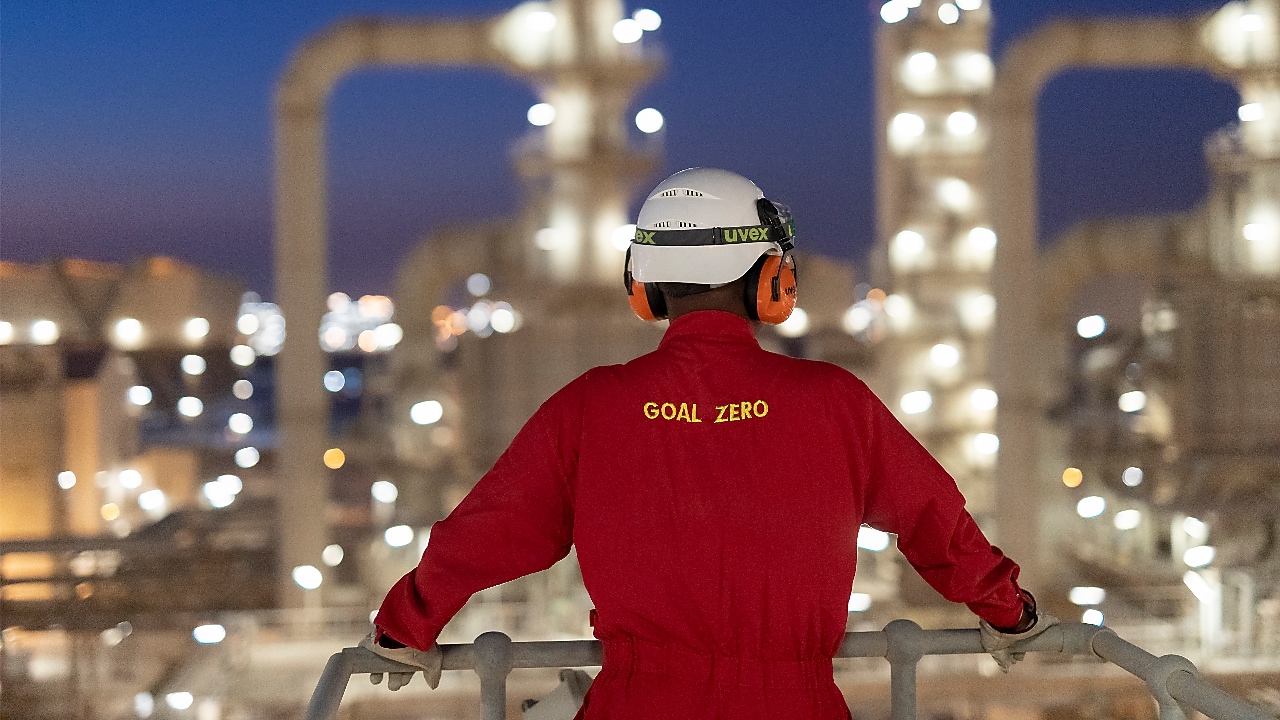
Safety at Pearl: “Every second counts, every role matters”
Working in the energy industry demands a focus on safety. This is evident at Pearl GTL in Qatar, the site of Shell’s largest ever turnaround.

On October 16, 2025
Think Formula 1 pitstop. The rapid manoeuvre in a high-speed, high-stakes race where mechanics use jacks to lift a car to change its tyres and adjust the front wing – all in as little as two seconds before it speeds off. Now, multiply the scale by millions and you can grasp the magnitude of a turnaround at a major energy or chemicals facility.
In a turnaround, a plant is partially or completely shut down for maintenance, inspection, repairs and upgrading. Turnarounds are vital to help prevent machinery and process failure that can halt operations and put the safety of workers at risk. But every day that a plant is shut down it is not producing, so teams work as fast as possible to get it up and running. Most important: that they manage to do all that complex and intense work safely.
That is what more than 16,000 workers from around the world managed to do for two months at the end of 2024 at the Pearl Gas-to-Liquids (GTL) plant in Qatar – completing the largest ever turnaround in Shell’s history. “Turnarounds are about great planning, unity and precision,” says Eddie Childs, Turnaround Manager at Pearl GTL, the biggest GTL plant in the world. With workers contributing more than 9 million working hours between them, “we invest years to prepare for weeks of intense execution. When you’re doing it, every second counts, every role matters,” he says.
Our approach to sustainability
At Shell, we have embedded a commitment to contribute to sustainable development into our strategy. We consider impacts, risks and opportunities related to climate, the environment, safety, ethics, people and communities. This story is the second in a series on our approach to sustainability and what that looks like in practice.
Meticulous planning
A focus on safety is evident in the day-to-day operations of Pearl GTL, which turns natural gas into liquid fuels, base oils for lubricants and other liquid products. The plant was recently recognised by the World Economic Forum as one of the world’s top industrial sites for using smart technology to make energy production safer as well as more efficient.
Completing a successful turnaround, though, called for three years of meticulous planning: from contracts, meals, sleeping arrangements, delivery schedules and shuttle buses, to drafting and practising detailed execution plans and putting procedures in place.
Conducted in partnership with Qatar's state energy company – QatarEnergy – the turnaround involved moving a combined 20,000 tonnes of equipment, the equivalent of nearly two Eiffel Towers – challenging work that was carried out without a life-changing injury or loss of life.
A range of factors played a part in that. Shell and QatarEnergy set up an interactive safety induction centre, for instance, which all workers had to pass through before starting work on the turnaround. Safety supervisors conducted regular ‘safety walks’ to look for potential hazards, identify any new risks to mitigate and continually remind the thousands of workers that safety was the priority.
“Safety is a mindset. We encouraged people to think: I will do the right thing and I will make others do the right thing; if I have any doubt, I will pause and consult,” says Ahmed Ali Shehata, Shell’s night-shift manager for the Pearl GTL turnaround.
Pearl GTL put worker welfare at the heart of its planning and preparation, Ahmed says, and at the centre of the turnaround’s execution. “We knew that if we took care of people, they would take care of themselves and each other.”
Photo gallery
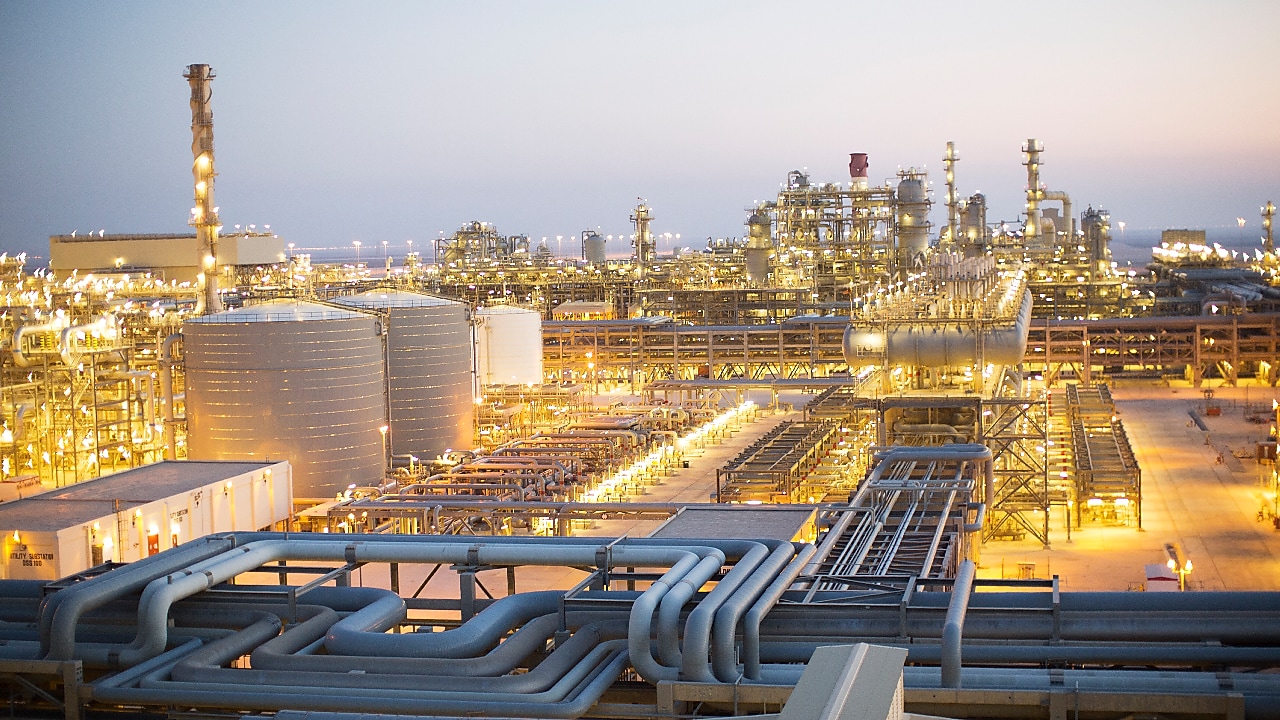
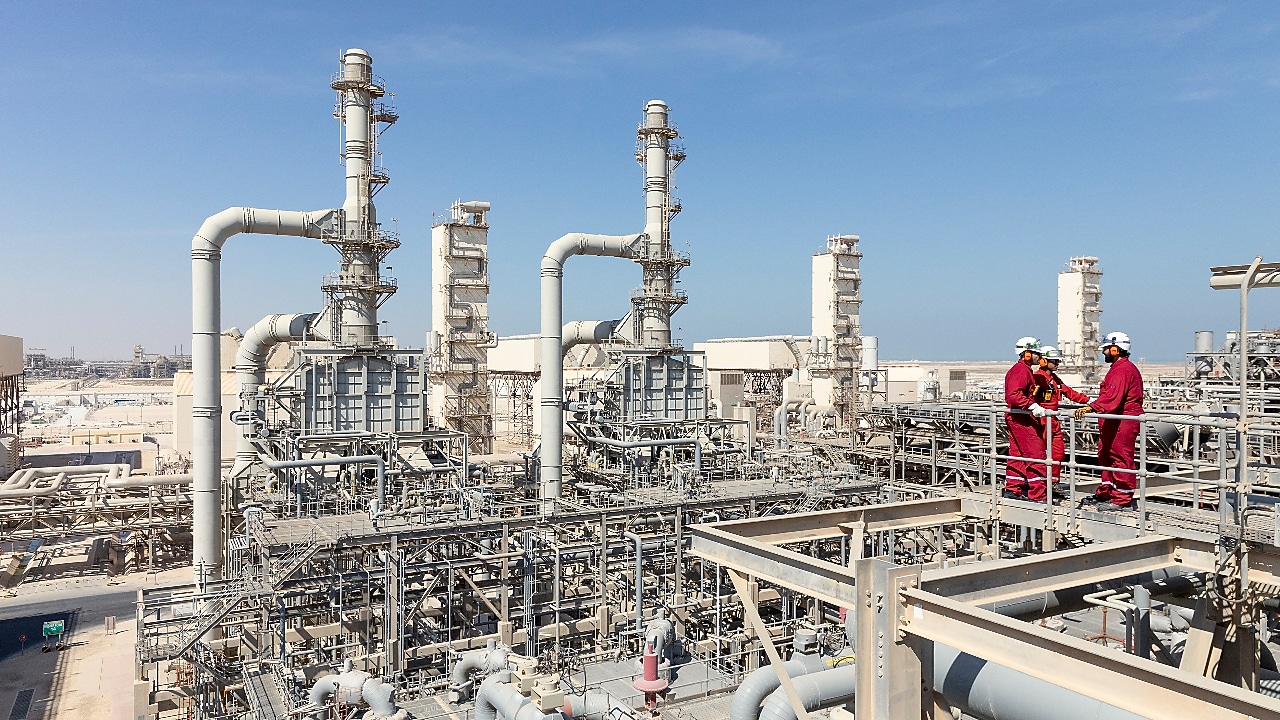
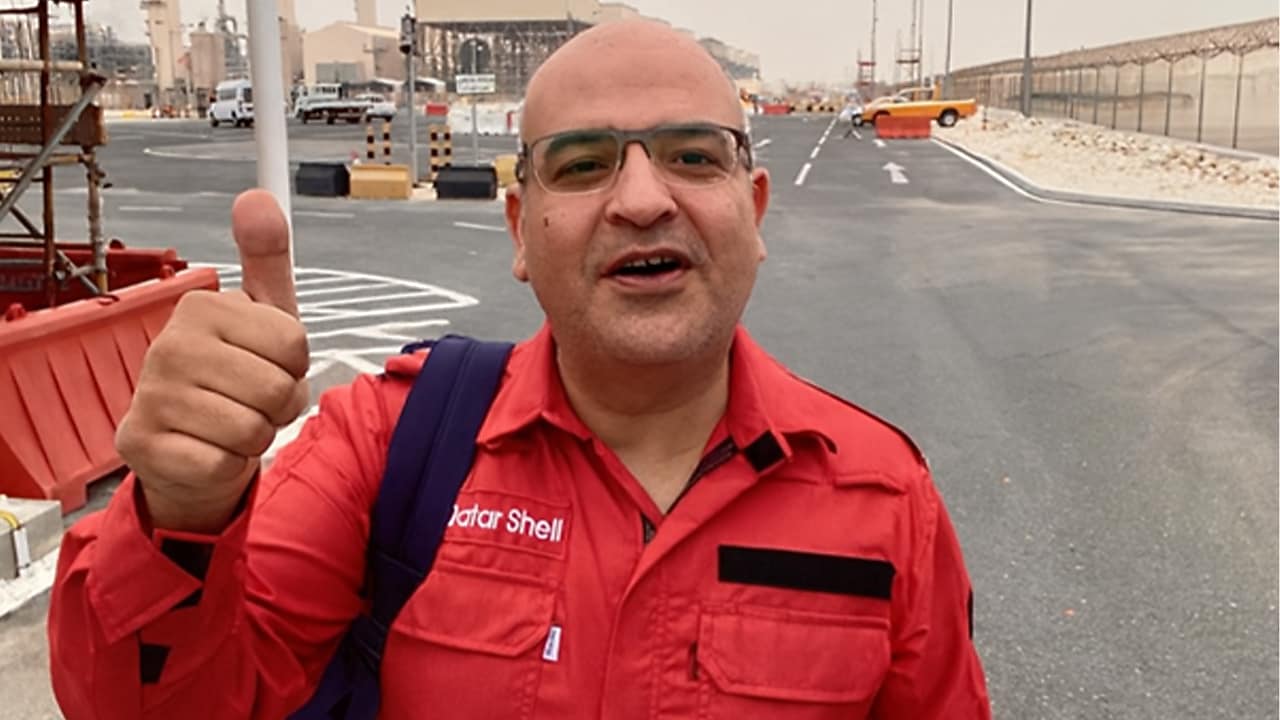
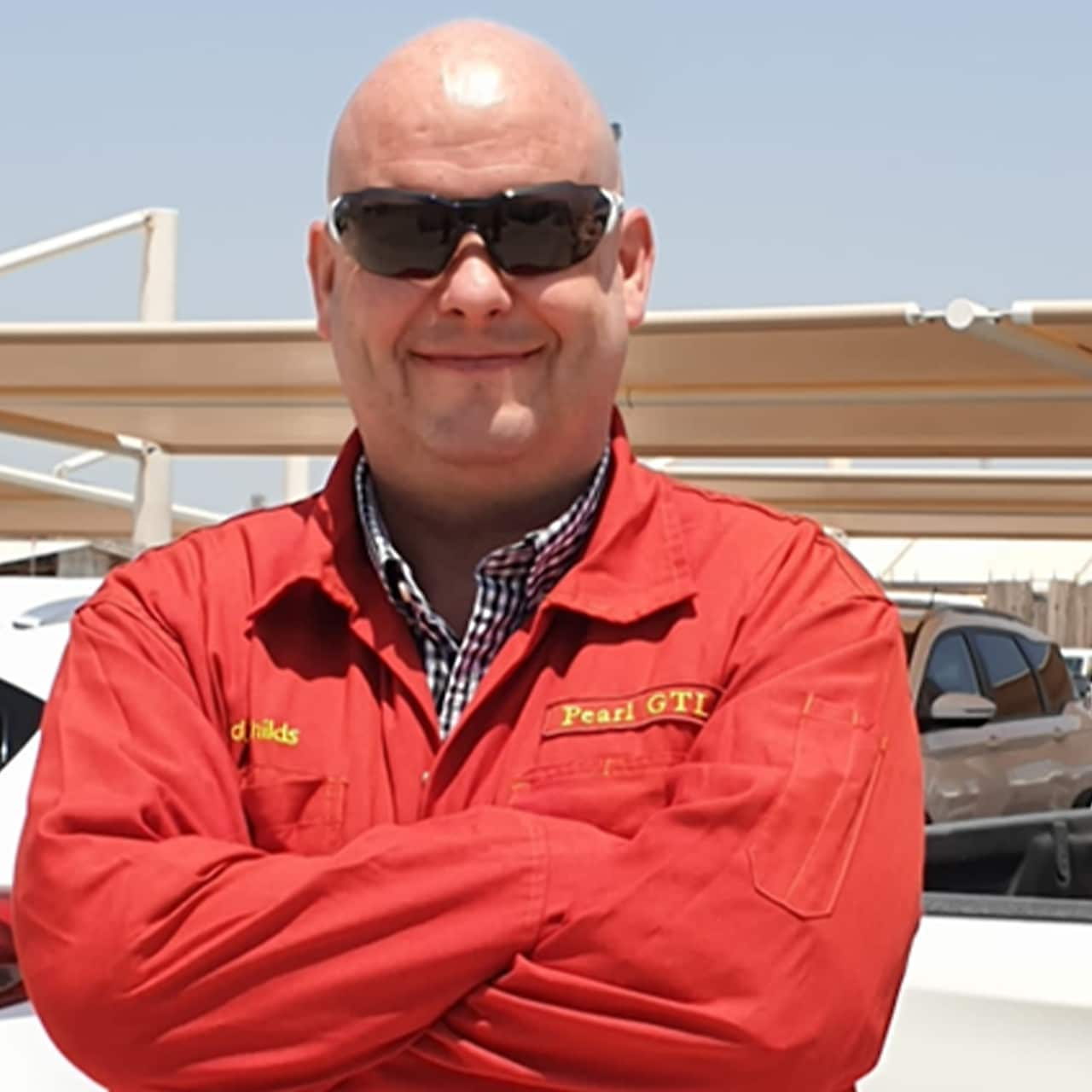
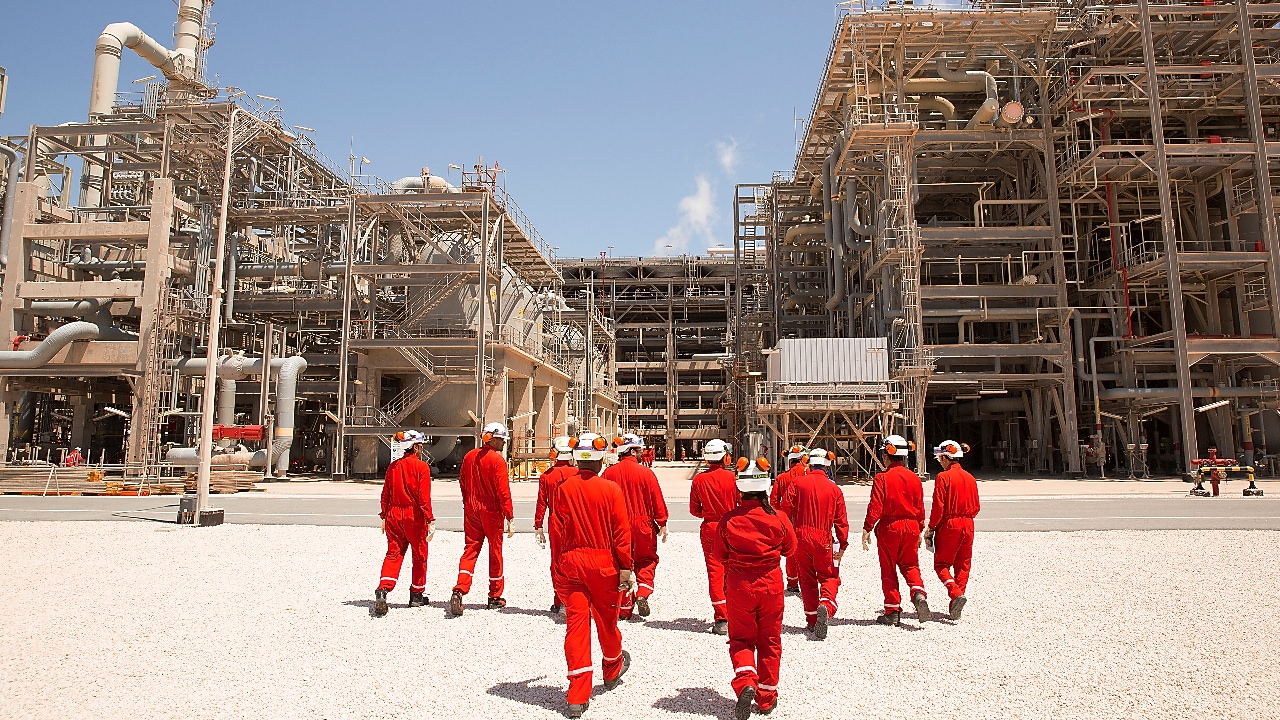
Shell’s Goal Zero ambition
The focus on safety in Shell operations like Pearl GTL is part of Shell’s Goal Zero ambition, which sets the expectation that all employees and contract staff aim to do no harm to people and to have no leaks across its operations.
The nature of Shell’s operations can expose it to a wide range of safety risks. At times, tragic incidents occur, resulting in serious injury or even the loss of life – incidents that profoundly impact Shell.
“We must learn from these incidents and our leaders continue to work to ensure we maintain an environment where everyone feels safe and that they can freely point out any safety risks without fear of reprisal,” says Sandra Yii, VP Shell Safety.
Being smart about safety
At Pearl GTL, the safety mindset extends beyond its turnaround. It is one of the reasons the plant has embraced smart technologies and artificial intelligence – innovation recognised by the World Economic Forum's Global Lighthouse Network in September 2025.
For example, Pearl GTL has deployed a machine-vision system that automatically identifies unsafe behaviours and hazardous conditions in real time. By alerting supervisors before incidents occur, the system helps prevent high-risk events.
Pearl also uses AI to provide near real-time insights into the health of critical equipment. This reduces the need for manual inspections and, by identifying potential issues early, teams can intervene before problems escalate.
“In our industry, staying alert and focused is not optional,” says Misfer Al-Bidaiwi, VP Pearl GTL. “Every task, every shift, every site demands our full attention.”
Ahmed Ali Shehata, night-shift manager for the Pearl GTL turnaround“We knew that if we took care of people, they would take care of themselves and each other.”
Cautionary note
Cautionary note
The companies in which Shell plc directly and indirectly owns investments are separate legal entities. In this content “Shell”, “Shell Group” and “Group” are sometimes used for convenience to reference Shell plc and its subsidiaries in general. Likewise, the words “we”, “us” and “our” are also used to refer to Shell plc and its subsidiaries in general or to those who work for them. These terms are also used where no useful purpose is served by identifying the particular entity or entities. ‘‘Subsidiaries’’, “Shell subsidiaries” and “Shell companies” as used in this content refer to entities over which Shell plc either directly or indirectly has control. The terms “joint venture”, “joint operations”, “joint arrangements”, and “associates” may also be used to refer to a commercial arrangement in which Shell has a direct or indirect ownership interest with one or more parties. The term “Shell interest” is used for convenience to indicate the direct and/or indirect ownership interest held by Shell in an entity or unincorporated joint arrangement, after exclusion of all third-party interest.
Forward-Looking statements
This content contains forward-looking statements (within the meaning of the U.S. Private Securities Litigation Reform Act of 1995) concerning the financial condition, results of operations and businesses of Shell. All statements other than statements of historical fact are, or may be deemed to be, forward-looking statements. Forward-looking statements are statements of future expectations that are based on management’s current expectations and assumptions and involve known and unknown risks and uncertainties that could cause actual results, performance or events to differ materially from those expressed or implied in these statements. Forward-looking statements include, among other things, statements concerning the potential exposure of Shell to market risks and statements expressing management’s expectations, beliefs, estimates, forecasts, projections and assumptions. These forward-looking statements are identified by their use of terms and phrases such as “aim”; “ambition”; ‘‘anticipate’’; “aspire”, “aspiration”, ‘‘believe’’; “commit”; “commitment”; ‘‘could’’; “desire”; ‘‘estimate’’; ‘‘expect’’; ‘‘goals’’; ‘‘intend’’; ‘‘may’’; “milestones”; ‘‘objectives’’; ‘‘outlook’’; ‘‘plan’’; ‘‘probably’’; ‘‘project’’; ‘‘risks’’; “schedule”; ‘‘seek’’; ‘‘should’’; ‘‘target’’; “vision”; ‘‘will’’; “would” and similar terms and phrases. There are a number of factors that could affect the future operations of Shell and could cause those results to differ materially from those expressed in the forward-looking statements included in this content, including (without limitation): (a) price fluctuations in crude oil and natural gas; (b) changes in demand for Shell’s products; (c) currency fluctuations; (d) drilling and production results; (e) reserves estimates; (f) loss of market share and industry competition; (g) environmental and physical risks, including climate change; (h) risks associated with the identification of suitable potential acquisition properties and targets, and successful negotiation and completion of such transactions; (i) the risk of doing business in developing countries and countries subject to international sanctions; (j) legislative, judicial, fiscal and regulatory developments including tariffs and regulatory measures addressing climate change; (k) economic and financial market conditions in various countries and regions; (l) political risks, including the risks of expropriation and renegotiation of the terms of contracts with governmental entities, delays or advancements in the approval of projects and delays in the reimbursement for shared costs; (m) risks associated with the impact of pandemics, regional conflicts, such as the Russia-Ukraine war and the conflict in the Middle East, and a significant cyber security, data privacy or IT incident; (n) the pace of the energy transition; and (o) changes in trading conditions. No assurance is provided that future dividend payments will match or exceed previous dividend payments. All forward-looking statements contained in this content are expressly qualified in their entirety by the cautionary statements contained or referred to in this section. Readers should not place undue reliance on forward-looking statements. Additional risk factors that may affect future results are contained in Shell plc’s Form 20-F and amendment thereto for the year ended December 31, 2024 (available at www.shell.com/investors/news-and-filings/sec-filings.html and www.sec.gov). These risk factors also expressly qualify all forward-looking statements contained in this content and should be considered by the reader. Each forward-looking statement speaks only as of the date of this content. Neither Shell plc nor any of its subsidiaries undertake any obligation to publicly update or revise any forward-looking statement as a result of new information, future events or other information. In light of these risks, results could differ materially from those stated, implied or inferred from the forward-looking statements contained in this content.
Shell’s net carbon intensity
Also, in this conent we may refer to Shell’s “net carbon intensity” (NCI), which includes Shell’s carbon emissions from the production of our energy products, our suppliers’ carbon emissions in supplying energy for that production and our customers’ carbon emissions associated with their use of the energy products we sell. Shell’s NCI also includes the emissions associated with the production and use of energy products produced by others which Shell purchases for resale. Shell only controls its own emissions. The use of the terms Shell’s “net carbon intensity” or NCI is for convenience only and not intended to suggest these emissions are those of Shell plc or its subsidiaries.
Shell’s net-zero emissions target
Shell’s operating plan and outlook are forecasted for a three-year period and ten-year period, respectively, and are updated every year. They reflect the current economic environment and what we can reasonably expect to see over the next three and ten years. Accordingly, the outlook reflects our Scope 1, Scope 2 and NCI targets over the next ten years. However, Shell’s operating plan and outlook cannot reflect our 2050 net-zero emissions target, as this target is outside our planning period. Such future operating plans and outlooks could include changes to our portfolio, efficiency improvements and the use of carbon capture and storage and carbon credits. In the future, as society moves towards net-zero emissions, we expect Shell’s operating plans and outlooks to reflect this movement. However, if society is not net zero in 2050, as of today, there would be significant risk that Shell may not meet this target.
Forward-Looking non-GAAP measures
This content may contain certain forward-looking non-GAAP measures such as adjusted earnings and divestments. We are unable to provide a reconciliation of these forward-looking non-GAAP measures to the most comparable GAAP financial measures because certain information needed to reconcile those non-GAAP measures to the most comparable GAAP financial measures is dependent on future events some of which are outside the control of Shell, such as oil and gas prices, interest rates and exchange rates. Moreover, estimating such GAAP measures with the required precision necessary to provide a meaningful reconciliation is extremely difficult and could not be accomplished without unreasonable effort. Non-GAAP measures in respect of future periods which cannot be reconciled to the most comparable GAAP financial measure are calculated in a manner which is consistent with the accounting policies applied in Shell plc’s consolidated financial statements.
The contents of websites referred to in this content do not form part of this content.
We may have used certain terms, such as resources, in this content that the United States Securities and Exchange Commission (SEC) strictly prohibits us from including in our filings with the SEC. Investors are urged to consider closely the disclosure in our Form 20-F and any amendment thereto, File No 1-32575, available on the SEC website www.sec.gov.
